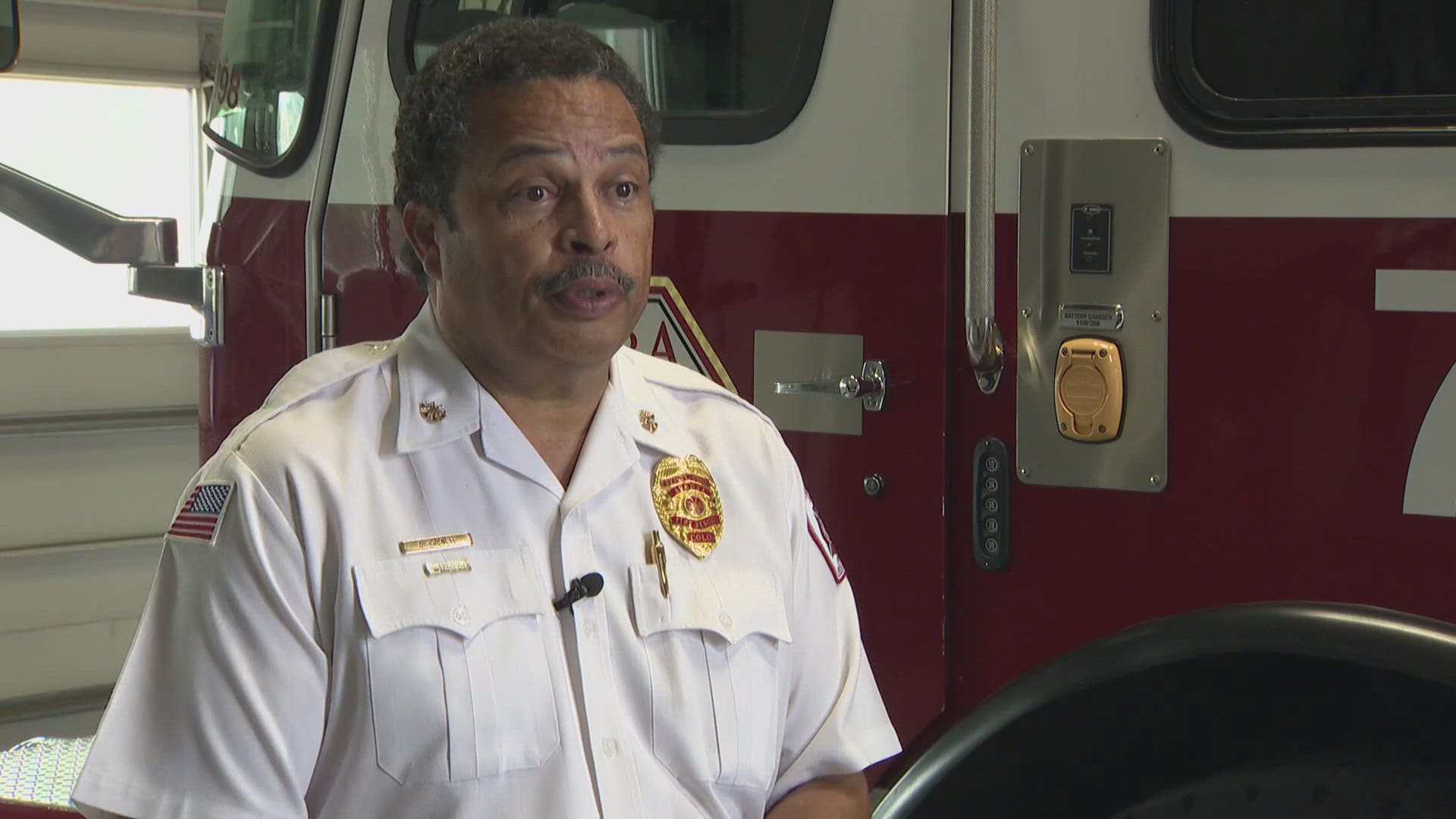AURORA, Colo. — Aurora Fire Rescue (AFR) is serving its firefighters in a new way. With a $420,000 grant from the Federal Emergency Management Agency's Assistance to Firefighters Grant Program, AFR said it'll begin cancer screening on all its personnel.
"This is a significant grant to focus on our members," said Allen Robnett, AFR deputy chief.
Robnett said there are the obvious dangers firefighters encounter every day, but there are also threats to your health no one can see.
"Some things we’re carrying with us, we don’t know," Robnett said. "We’ve picked [it] up on the scene, and we don’t know about it. And years and years and years down the road, we have a contamination, or you get cancer or cardiovascular disease that you didn’t know when you were on that scene was going to be a hazard."
Robnett said the department does what it can to mitigate the spread of carcinogens when firefighters return from a call for service.
"They’re off gassing whatever environment they were contaminated in," Robnett explained. "So we have the ventilation that sucks that out and sends it to the outside air."
Robnett said he's worked with the department for 35 years. When he was first starting out, treatment of uniforms and gear looked different.
"There was a time when all the bunkers were outside in the bay along the wall so anytime the engine fired up, they got charged up again with exhaust," Robnett said. "There was a time we would sleep next to our bunkers in our beds. So these are things we’re trying to separate us from those contaminates."
Bunkers are the safety equipment firefighters put on when responding to a fire. This includes pants, boots, jacket, hood and helmet.
With technology changing, it's putting a further emphasis on a grant with this focus.
"Once we discovered these new technologies exist, we have to go out and seek funding so we can bring it in-house to protect our members," Robnett said.
Robnett has seen the worst of cancer's impact on the department.
"We've had two firefighters pass from cancer," Robnett said. "We’ve had numerous others who have been diagnosed that are currently being treated for cancer. We have some in remission that we are really thankful for. One of the members that died from cancer was in my academy and a friend of mine. So this really hits home to us because these aren’t just numbers or stats, these are our friends and we know these people."
AFR Medical Director Dr. Eric Hill said cancer is the leading line of duty killer among firefighters.
"It accounts for about 66% of those line of duty deaths," Hill said.
Hill said early detection is key for treatment.
"If I can identify a cancer in the early stages, long before it becomes metastatic, going to distant organ systems, it’s a lot easier to treat and their chances of survival and full recovery is much higher," Hill said.
He said the screenings will only benefit the agency's future.
"This really enables our people to be screened earlier. It’s really about investing in them, gives them peace of mind, showing they’re our greatest asset our department," Hill said.
Robnett said their line of work prioritizes health that goes beyond just their time clocking in and out.
"So that incorporates your diet, fitness [and] cancer screenings, so you can serve out a full career as you define it and walk away and do all the things you dreamed of in retirement," Robnett said.
AFR said screening will begin spring 2025 and will take several weeks for all of the department's 425 first responders.

